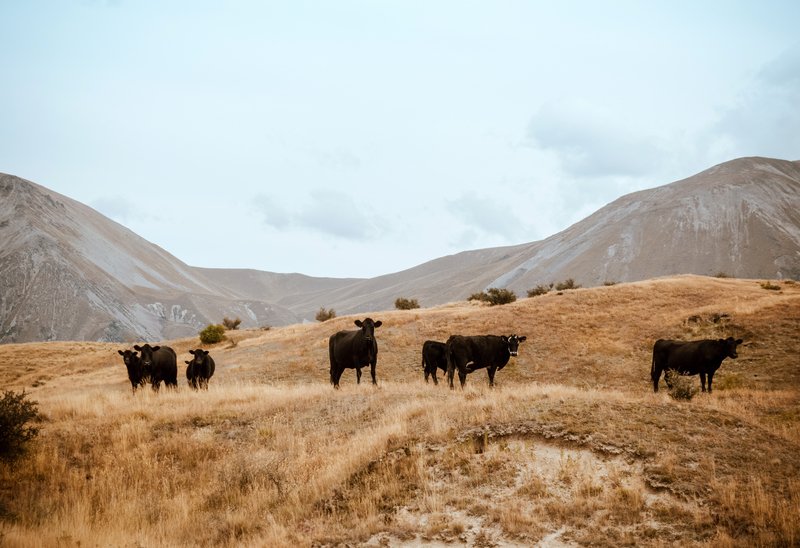
WE’RE ON A MISSION TO SAVE FAMILY FARMS.
ABOUT US
The National Black Farmers Association (NBFA) is a non-profit organization representing African American farmers and their families in the United States. As an association, it serves tens of thousands of members nationwide. NBFA's education and advocacy efforts have been focused on civil rights, land retention, access to public and private loans, education and agricultural training, and rural economic development for Black and other small farmers.
FOUNDING
The National Black Farmers Association Incorporated is a non-profit, community organization founded on February 1995 in Baskerville, Virginia by John W. Boyd, Jr. He is fourth generation farmer who is determined to hold on to his heritage, and to save his farm and others from foreclosure caused by racial discrimination under the United States Department of Agriculture.
HOW WE DO IT
We encourage the participation of small & underserved farmers in gaining access to resources of state and federal programs administered by the United States Department of Agriculture, while communicating and educating our community through effective outreach and technical assistance.
President and Founder of the NBFA John W. Boyd, Jr.
John W. Boyd Jr. is a fourth generation farmer and a civil rights activist. He was born in Queens, New York on September 4, 1965. He has been featured in The Washington Post, "60 Minutes," "Nightline," CNN and as ABC News Tonight's "Person of the Week." He is a past nominee for the NAACP's highest honor, The Springarn Award, and currently ranks as one of Ebony Magazine's most influential African-Americans.
In 1995, Boyd founded the National Black Farmers Association after encountering the US Department of Agriculture's discriminatory practices first-hand and meeting many more black farmers who shared this experience. Boyd soon led NBFA members in a march on the White House. He went on to meet with President Clinton and to testify before Congress. The plight of black farmers had caught the nation's attention, but Boyd's pursuit of justice continues to this day. In addition to his work with NBFA and as an organizer of the Fairness Now for Black Farmers rallies, Boyd has served in many leadership roles:
2009, Appointed by Virginia Governor Bob McDonnell to serve on his Agriculture transition team;
2009, Vetted by President Obama’s transition team as a candidate for Secretary of Agriculture;
2005, Appointed by then-Virginia Governor-elect Tim Kaine to serve as co-chair of his
Policy Committee on Agriculture and Forestry during the transition period;
2005, Recipient of the Legacy of Excellence “Keeper of the Flame” Award;
2000, Appointed by President Bill Clinton to serve on his administration's tobacco commission;
2000, Democratic nominee for election to Virginia's 5th Congressional District;
1999, Appointed by then-Virginia Governor Jim Gilmore to serve on the Virginia Tobacco Indemnification and Community Revitalization Commission;
Boyd lives in Baskerville, Virginia where he continues to work his farm.
HISTORY
Many Black farmers across the nation experienced discrimination in their dealings with U.S. Department of Agriculture agencies in their states. Across the nation, Black farmers alleged, and the USDA later agreed, they were denied access to loans and subsidies provided by the government. On a national level, farm subsidies that were afforded to white farmers were not afforded to Black farmers. Since they were denied government loans, emergency or disaster assistance, and other aid, many Black farmers lost their farms and their homes.
Black farmers nationwide joined in a class action discrimination suit against the U.S. Department of Agriculture (USDA). The first prominent cases were filed in federal court in 1997. An attorney called it "the most organized, largest civil rights case in the history of the country." That year, Black farmers from at least five states held protests in front of the USDA headquarters in Washington, DC. Protests in front of the USDA were a strategy employed in later years as the Black farmers sought to keep national attention focused on the plight of the Black farmers. That year, representatives of the National Black Farmers Association met with President Bill Clinton and other administration officials at the White House. The NBFA's president, John W. Boyd testified before the United States House Committee on Agriculture.
In Pigford v. Glickman, U.S. Federal District Court Judge Paul L. Friedman approved the settlement agreement and consent decree in the case on April 14, 1999. The settlement recognized discrimination against 22,363 black farmers but the NBFA would later call the agreement incomplete because more than 70,000 were excluded. Nevertheless, the settlement was deemed to be the largest-ever civil rights class action settlement in American history. Lawyers estimated the value of the settlement to be more than $2 billion. Some farmers would have their debts forgiven. Judge Friedman appointed a monitor to oversee the settlement.
Farmers in Alabama, Mississippi, Arkansas and Georgia were among those affected by the settlement. The NBFA's president was invited to testify before Congress on this matter numerous times following the settlement including the United States Senate Committee on Agriculture on September 12, 2000. He testified that many farmers had not yet received payments and others were left out of the settlement. The NBFA asked Congress to pass legislation that would ensure a full resolution of the discrimination cases.
Environmental Working Group and the NBFA issued a report in July 2004 accusing the USDA of withholding nearly three out of every four dollars in the multi-billion dollar settlement of discrimination cases. The report says that the U.S. Department of Justice and the USDA pursued a path of "willful obstruction of justice" in blocking many of the cases. It was later revealed that one DoJ staff "general attorney" was unlicensed while she was handling black farmers' cases. The NBFA called for all those cases to be reheard.
In 2006 the Government Accountability Office (GAO) issued a report highly critical of the USDA in its handling of the Black farmers cases. The NBFA continued to lobby Congress to provide relief. NBFA's Boyd secured congressional support for legislation that would provide $100 million in funds to settle late-filer cases. In 2006 a bill was introduced into the House of Representatives and later the Senate by Senator George Felix Allen.
In 2007 Boyd testified before the United States House Committee on the Judiciary about this legislation.
As the organization was making headway by gathering congressional supporters in 2007 it was revealed that some USDA Farm Services Agency employees were engaged in activities aimed at blocking Congressional legislation that would aid the Black farmers. President Barack Obama, then a U.S. Senator, lent his support to the Black farmers' issues in 2007. A bill cosponsored by Obama passed the Senate in 2007. The Senate and House versions of the Black farmers bill, reopening Black farmers discrimination cases, became law in 2008. The new law could affect up to 74,000 Black farmers according to some news reports.
In 2008 hundreds of Black farmers, denied a chance to have their cases heard in the Pigford settlement, filed a new lawsuit against USDA. Later in 2008, the GAO issued a new report sharply critical of the USDA's handling of discrimination complaints. The GAO recommended an oversight review board to examine civil rights complaints.
After numerous public rallies and an intensive NBFA member lobbying effort, Congress approved and President Barack Obama signed into law in December 2010 legislation that set aside $1.15 billion to resolve the outstanding Black farmers cases. NBFA's John W. Boyd, Jr. attended the bill signing ceremony at the White House. The NBFA continues to fight for farmers rights.





